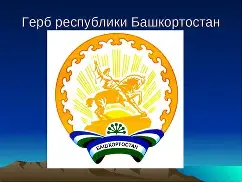Bashkortostan's lost sovereignty
Following the collapse of the Soviet Union 35 years ago, the region - close to the Urals - proclaimed its autonomy, later cancelled by Vladimir Putin's “vertical of power”. In today's Urfa, home to thousands of soldiers now on the Ukrainian front, very little remains of those dreams and the word ‘sovereignty’ has been banned from public discourse.
Moscow (AsiaNews) - In recent days, the Russian republic of Bashkortostan, a Tatar region close to the Urals, commemorated the 35th anniversary of its declaration of state sovereignty, in the context of the collapse of the Soviet Union. Russia then regained control of the region, and in the capital Ufa today, people prefer to remember that moment only as ‘Republic Day’.
Already in the 1980s, a coalition formed by the directors of the main industrial companies in the area had taken over in the then Soviet republic, as local historians recall. This group pushed for a ‘republican budget’ to obtain broad economic freedom, de facto autonomy from the domination of Moscow's ministries, in order to establish direct relations with external partners.
It was called the “group of red directors”, as recalled by journalist Josif Galperin, who in those years worked as secretary of the local youth newspaper Leninets and participated in the activities of the Bashkir democratic and environmentalist movements.
They discreetly referred to programmes for a gradual transition to a market economy, such as the “500 days” programme of Grigory Yavlinsky, the economist who is still head of the Russian liberal party Yabloko, who in 1990 took up the post of deputy chairman of the Council of Ministers of the USSR, which was by then in disarray.
During those years, the Moscow government had also approved the “Rižkov-Abalkin” project, which during Mikhail Gorbachev's perestroika represented a timid opening towards a freer economy, but the “red directors” of Bashkortostan sought true independence for their companies, becoming their owners.
In March 1989, one of these entrepreneurs, the director of the Ufa oil company, Murtaz Rakhimov, ran in the elections, which left some room for independents, and became a member of the Moscow parliament with the support of the Bashkir democrats.
After the elections, in May 1989, some Bashkir nationalist movements began to demand at least the status of an autonomous Soviet republic for the republic, which until then had remained the minor district of Bashkiria, presenting an appeal signed by over 300,000 people.
Even the regional secretary of the Communist Party, Ravmer Khabibullin, supported the push for greater independence, stating that “although our region surpasses most Soviet republics in terms of industrial production and overall budget, we remain discriminated against in terms of social conditions”. In October 1989, Bashkiria's elevation to a full Soviet republic was approved.
Researcher Damir Valeev wrote a monograph on “National Sovereignty and the Rebirth of Bashkortostan”, in which he recalls that 61.2% of the local population supported this first transition to autonomy, mainly thanks to the support of the Bashkirs and Tatars, who made up the majority of the republic's inhabitants, reaching almost 90%.
With the March 1990 elections, which led to the election of Boris Yeltsin in the Russian republic, the Ural region decisively affirmed its identity in the context of the end of the empire.
It was in front of the Bashkirs that Yeltsin uttered his famous phrase in August 1990, summarising his political programme: “Take all the independence you can swallow”, which was then completely nullified by Vladimir Putin's “vertical of power”.
In the current context of the war with Ukraine, in which thousands of Bashkir lives are being sacrificed, very little remains of the dreams of autonomy and sovereignty of 35 years ago, even though the days of celebration were enlivened by various events in the parks of Ufa, with lectures, exhibitions, competitions and film screenings, and traditional agricultural fairs with the blessing of the current governor Radij Khabirov, who avoided using the word “sovereignty” in his official speeches, but for which the Bashkirs have not yet given up dreaming.
10/01/2020 18:43
10/05/2018 10:23
19/09/2019 15:28







.png)










